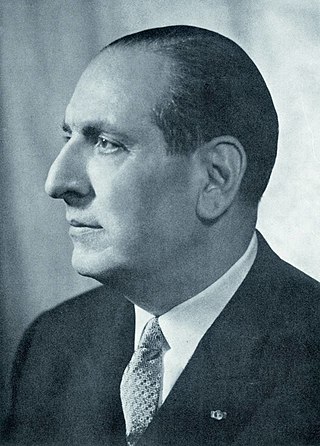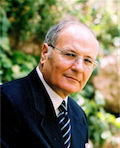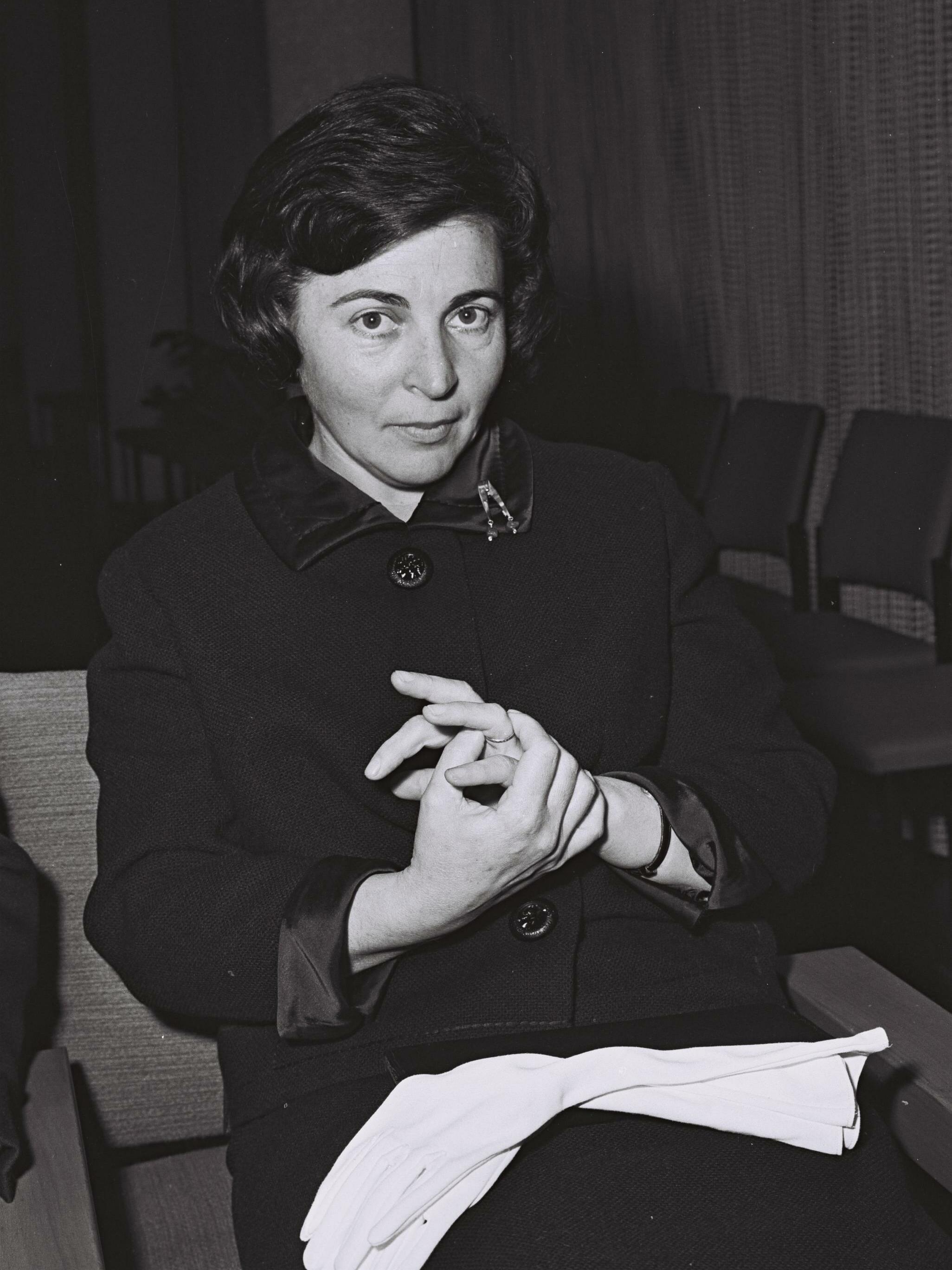
Levi Eshkol, born Levi Yitzhak Shkolnik, was an Israeli statesman who served as the third Prime Minister of Israel from 1963 until his death from a heart attack in 1969. A founder of the Israeli Labor Party, he served in numerous senior roles, including Minister of Defense (1963–1967) and Minister of Finance (1952–1963).
Mapai was a democratic socialist political party in Israel, and was the dominant force in Israeli politics until its merger into the modern-day Israeli Labor Party in 1968. During Mapai's time in office, a wide range of progressive reforms were carried out, as characterised by the establishment of a welfare state, providing minimum income, security, and free access to housing subsidies and health and social services.

Charles Helou was a Lebanese politician and President of Lebanon from 1964 to 1970.

Gaston Ghrenassia , known by his stage name Enrico Macias, is an Algerian-French singer, songwriter and musician of Algerian Jewish descent.

The waiting period was a 3-week interval in the history of Israel, May 15 – June 5, 1967, between the Egyptian crossing of the Suez Canal into the Sinai Peninsula and the outbreak of the Six-Day War.
The Canadian Arab Federation (CAF) was formed in 1967 to represent the interests of Arab Canadians with respect to the formulation of public policy in Canada. It presently consists of over 40 member organizations.

Yad Kennedy, located in the Mateh Yehuda Region near Jerusalem, is a memorial to John F. Kennedy, the 35th President of the United States, who was assassinated in Dallas, Texas in 1963. The 60-foot high (18 m) memorial is shaped like the stump of a felled tree, symbolizing a life cut short. Inside is a bronze relief of Kennedy, with an eternal flame burning in the center. It is encircled by 51 concrete columns, one for each of the 50 states in the United States plus one for Washington, D.C., that nation's capital. The emblems of the states are displayed on each of the columns, and the columns are separated by slim panels of glass. The monument measures approximately 250 feet (76 m) in circumference around its base, and there is space within the memorial for approximately 100 visitors at a time. The monument was built in 1966 with funds donated by American Jewish communities.

The Samu incident or Battle of Samu was a large cross-border assault on 13 November 1966 by Israeli military on the Jordanian-controlled West Bank village of Samu in response to an al-Fatah land mine attack two days earlier near the West Bank border, which killed three Israeli soldiers on a border patrol. It purportedly originated from Jordanian territory. It was the largest Israeli military operation since the 1956 Suez Crisis and is considered to have been a contributing factor to the outbreak of the Six-Day War in 1967. Since 1965 Jordan had an active campaign to curb Fatah sabotage activities. The handling of the incident was widely criticised in Israeli political and military circles, and the United Nations responded with United Nations Security Council Resolution 228, censuring Israel for "violating the United Nations Charter and the General Armistice Agreement."

The State of Israel is widely believed to possess nuclear weapons. Estimates of Israel's stockpile range between 80 and 400 nuclear warheads, and the country is believed to possess the ability to deliver them in several methods, including by aircraft, as submarine-launched cruise missiles, and via the Jericho series of intermediate to intercontinental range ballistic missiles. Its first deliverable nuclear weapon is thought to have been completed in late 1966 or early 1967; which would make it the sixth country in the world to have developed them.

The eleventh government of Israel was formed on 26 June 1963, midway through the fifth Knesset. It was the first government formed by Levi Eshkol following the second resignation of David Ben-Gurion.

Freddy Eytan, is an Israeli diplomat, former ambassador, writer and journalist.
Events in the year 1969 in Israel.
Events in the year 1964 in Israel.
Events in the year 1963 in Israel.

Iceland–Israel relations refers to the diplomatic relations between Iceland and Israel. Both nations are members of the Organisation for Economic Co-operation and Development and the World Trade Organization.
Annie Ousset-Krief, Ph.D. and associate professor at the Sorbonne Nouvelle - Paris 3 University, is a French historian and American Civilization specialist.

Yad Levi Eshkol is the official non-governmental organization commemorating Israeli prime minister Levi Eshkol. The organization was founded in accordance with a government resolution made in 1970. Yad Levi Eshkol is carrying public activities in the fields of education, research and documentation. Its founding chairwoman was Mrs. Miriam Eshkol who headed the organization until 2008.

Miriam Eshkol was the wife of Israeli Prime Minister Levi Eshkol. In her years as the Prime Minister's wife (1964–1969) she was closely followed by the public and press, leading numerous public organization in promotion of public causes. Following Levi Eshkol's passing she founded and chaired Yad Levi Eshkol and served as its chairwoman from 1970 to 2008.
The following lists events that happened in 1964 in Iceland.











